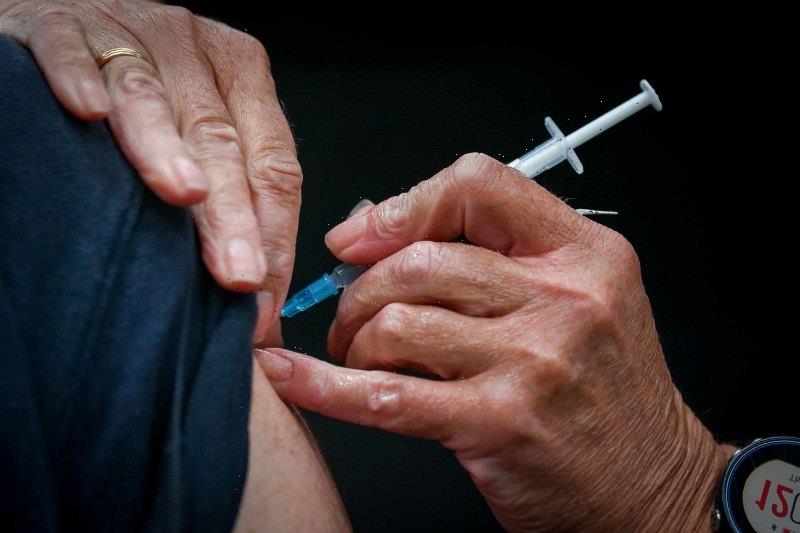For our free coronavirus pandemic coverage, learn more here.
The starter’s gun has been fired on a new stage in the vaccine rollout. On Thursday SPC, the Shepparton-based fruit packing and canning company, announced it wanted its workforce vaccinated by November. After that date, staff would not be able to attend work if they had not had a COVID-19 jab.
With the Delta variant spreading in NSW and Victoria, the company’s chief executive, Robert Giles, told The Age that after aged care, healthcare and frontline workers, his staff, who are involved in food manufacture and supply, were the next group that should be vaccinated.
Credit:Eddie Jim
Many other employers are watching the SPC move closely, as it has the potential to become a test case in what is a legally complex area of both workplace law and ethics more broadly. Deakin University vice-chancellor Iain Martin has raised the prospect of mandatory vaccination for staff and students from the first semester of 2022, saying it should be looked at once the whole adult population has access.
But if employers are seeking clear leadership in this area from governments, they are likely to be disappointed. The federal government has said it has no plan to bring in legislation to enforce workplace vaccine mandates. In NSW, an attempt by Premier Gladys Berejiklian to introduce mandatory vaccines for the construction sector is opposed by members of her own party.
Prime Minister Scott Morrison, speaking after national cabinet on Friday, insisted that vaccination remains a choice in Australia and that it will not be made mandatory. He also indicated, however, that more employers would win the right to require their workers to get a jab.
The Prime Minister said the latest advice provided by Solicitor-General Stephen Donoghue suggested there would be situations in which it would be reasonable for employers to require a worker to be vaccinated, but stressed these would be decisions made by individual businesses, which must navigate existing employment law.
Most states have public health orders that require groups such as healthcare and quarantine workers to be vaccinated. Mr Morrison said there are now other groups of workers whose bosses will have “reasonable grounds” for a vaccine mandate on the grounds of workplace safety, including “those who are in a position where they are … public facing in their daily lives, retail, supermarkets, things of that nature”.
Under the law, employers will have to meet a “reasonableness test” to make vaccines mandatory. The Fair Work Ombudsman, which regulates Australia’s workplaces, is updating its advice on what those grounds are, but it is important to note that the Ombudsman only provides advice and the rules will need to be thrashed out through workplace case law. Legal experts say it’s unlikely there will be blanket rules for vaccination, and the risk in each workplace would have to be examined.
Around the world, company-mandated vaccines are becoming more common, especially in the US where many firms, including tech giants Microsoft, Facebook and Google, have required employees to get inoculated if they want to return to the office.
If Australia is to reduce its use of economically and psychologically damaging lockdowns, it desperately needs to move towards its goal of 70 per cent of eligible adults being vaccinated. Mandates could get us some of the way – vaccine supply permitting – but The Age continues to advise our policymakers to be cautious in this area.
Workplace safety is vitally important and where necessary, steps should be taken to protect workers from being exposed to the virus and to mitigate its spread. We support the move to mandate vaccines in high-risk, high exposure workplaces. But we do not believe it should be the default position for all workplaces or in the wider community.
If an employee is in a low-risk workplace, should opting out of a vaccine cost them their job? We do not think so. People who choose not to be vaccinated, however, should be prepared to live with some consequences, such as missing out on access to events or travel.
The Age continues to argue that the battle to show the overwhelming benefits of vaccines should be fought and won in the public square, where experts and governments can put forward the best health advice, offer whatever incentives they deem necessary, and convince people to take the jab. This ultimately will be our best way of increasing inoculation rates and returning to more normal lives.
Gay Alcorn sends an exclusive newsletter to subscribers each week. Sign up to receive her Note from the Editor.
Most Viewed in National
From our partners
Source: Read Full Article

